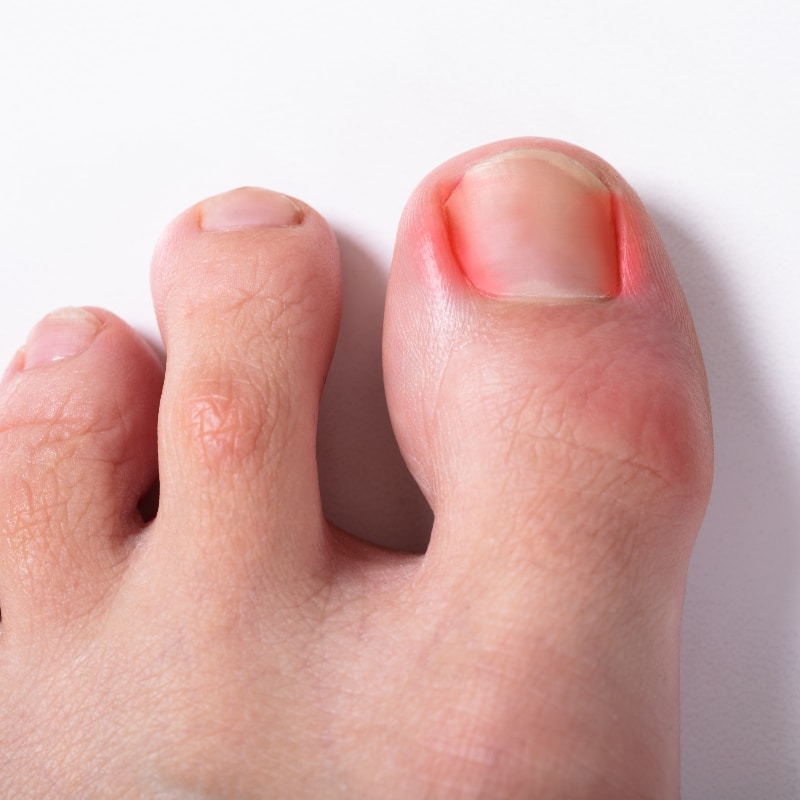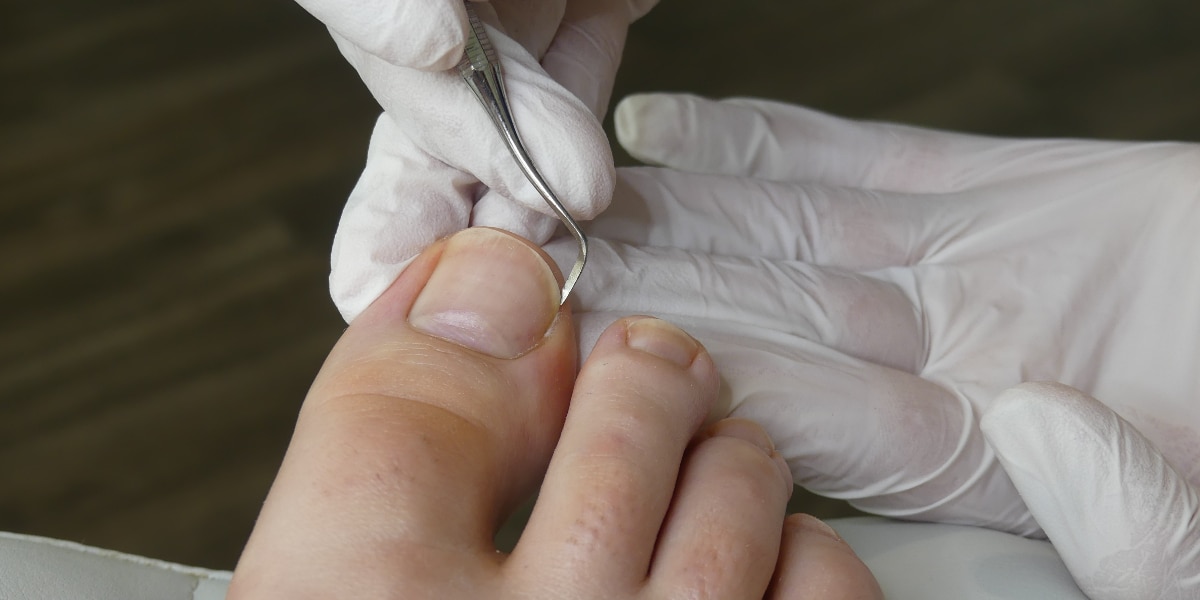Ingrown Toenails
They may seem like a “small” problem at first, but an ingrown toenail can quickly become a major impediment to your daily activities—especially here in the bustling D.C. area, where most people spend a lot of time on their feet.
If you notice pain, redness, swelling, or extreme sensitivity around the edge or border of a toenail, don’t ignore it. While they can sometimes be treated at home, ingrown toenails that become infected or keep returning are serious concerns, particularly for those with diabetes or poor circulation.
The great news is that ingrown toenail treatment from Capital Podiatry Associates is quick, easy, and can bring about rapid relief from pain. We can even keep most ingrown toenails from returning permanently, if you wish.
What Is an Ingrown Toenail?
An ingrown toenail happens when part of the toenail starts digging or growing inward into the surrounding skin. This usually happens along the edge of the largest toenail, but can affect any toe.
Common signs that you may have an ingrown toenail include:
- Pain along one or both sides of the nail
- Tenderness, especially when pressed (or accidentally bumped)
- Redness and swelling around the nail
If the toenail becomes infected, the pain can become quite severe. In addition, you may notice a buildup of pus, or red streaks extending further up the toe.
WHAT CAUSES INGROWN TOENAILS?
There may be any number of potential contributing causes behind an ingrown nail. The most common include:
- Wearing constrictive footwear that presses on the toes, such as shoes that are too tight in the toe box area.
- Cutting your toenails too short, or rounding the corners too sharply. (Always cut relatively straight across, and leave just enough “overhang” to get your fingernail under the end of the toenail.)
- Letting your toenails grow too long. (For most people, trimming every 4-6 weeks is sufficient.)
- Specific injuries or conditions, such as stubbing your toe or having a fungal toenail infection.
- Having a genetic predisposition to developing ingrown toenails. This is likely the case if your ingrown toenails keep coming back again and again.
When Should I See a Doctor About My Ingrown Toenails?
If your ingrown toenails are severely painful or demonstrating any signs of infection (pus, spreading redness), call us immediately. We also recommend you call us at the first sign of an ingrown toenail if you have diabetes or poor blood flow to your feet.
However, it’s important to understand that it’s never too early to seek professional care, regardless of your circumstances. In fact, we strongly encourage you to do so.
While mild ingrown toenails can sometimes be treated at home by avoiding tight shoes and soaking your feet a few times per day, this process can take time and is painful and inconvenient in the best circumstances. It can also fail and leave you in more pain than when you started.
By contrast, professional treatment for ingrown toenails can bring rapid and safe relief from a single appointment.
Don’t Let a Small Problem Become a Big One
The sooner you seek our help and guidance for a painful ingrown toenail, the sooner you can get back to living your best life, and the lower your risk of long-term problems or complications.
Give your toenails the care they deserve! Just give Capital Podiatry Associates in Alexandria a call at (703) 560-3773, or contact us online to request your appointment. We understand how seriously an ingrown toenail can affect your life, and will make every effort to see you as soon as possible.

